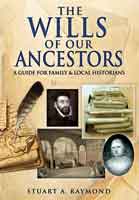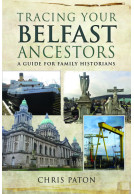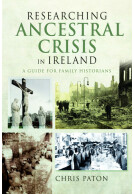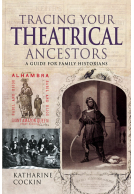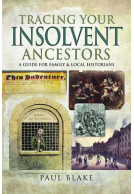Tracing Your Poor Ancestors (ePub)
A Guide for Family Historians
Imprint: Pen & Sword Family History
Series: Tracing Your Ancestors
File Size: 12.9 MB (.epub)
Illustrations: 40 black and white
ISBN: 9781526742940
Published: 3rd June 2020
Many people in the past – perhaps a majority – were poor. Tracing our ancestors amongst them involves consulting a wide range of sources. Stuart Raymond’s handbook is the ideal guide to them.
He examines the history of the poor and how they survived. Some were supported by charity. A few were lucky enough to live in an almshouse. Many had to depend on whatever the poor law overseers gave them. Others were forced into the Union workhouse. Some turned to a life of crime. Vagrants were whipped and poor children were apprenticed by the overseers or by a charity. Paupers living in the wrong place were forcibly ‘removed’ to their parish of settlement. Many parishes and charities offered them the chance to emigrate to North America or Australia.
As a result there are many places where information can be found about the poor. Stuart Raymond describes them all: the records of charities, of the poor law overseers, of poor law unions, of Quarter Sessions, of bankruptcy, and of friendly societies. He suggests many other potential sources of information in record offices, libraries, and on the internet.
As featured in
Who Do You Think You Are
As featured in
Who Do You Think You Are
As featured in
Who Do You Think You Are
"Many of us will have had poor ancestors and this book will help us understand the desperate lives of the poor, how they tried to survive and the records that they left behind."
London Westminster & Middlesex FHS Journal, December 2021
I can comfortably recommend this book to anyone struggling with this tricky section of family history, or anyone interested in the field generally. This book holds up to the rest of the Tracing Your Ancestors series especially well, so if you enjoy this book there are plenty of other resources available for other sections of family history as well.
Heather Nowlan, Family Tree Searchers
Stuart Raymond, a former librarian of the Yorkshire Archaelogical Society, looks at how family historians can trace their poor relatives who lived between the 16th and the 20th century. The author gives a well-researched account of what life was like for the poor and how the odds were stacked against them. He reviews the Poor Law and how it changed over time, and also includes details of the main charities involved with the poor and where to find their records. The author also looks at researching crime records, including transportation records. He suggests many other ways for a family historian to find information on their ancestors such as bankruptcy, friendly societies, record offices, libraries and on the internet. Some of the records he suggests I had not even heard of. The book has a useful index and I particularly liked the notes section where for each chapter he gives details of references to that he has used for.
Jean Fowlds, Glamorgan FHS
154 pages packed with incredibly useful reference information which no family historian should be without
The Essex Family Historian
The author looks at the life of our poor ancestors and how to go about finding records. Where do you look when your ancestors owned no land, when they were in almshouses or workhouses, when they were vagrants or criminals, etc. The book includes sections on searching charity records, how to find ancestors who were pauper and vagrants, how to find those who may have been accused of, tried for or sentenced for committing a crime and where to look for records on debts and bankruptcies. An excellent resource for any genealogist, it is concise, informative and well written.
NetGalley, Kerrie Hoar
It is a good book to have on your shelf ready to dip into when you require assistance.
East Yorkshire Family History Society
As featured by
Cumbria FHS
As featured by
Aberdeen and North East Scotland FHS
The book is well written and easy to read and I found it very useful for my own research. After being pointed in the direction of Churchwarden’s Accounts, I found ancestors who had been paid to provide goods or services for the poor as well as ancestors who had received the help. This is a very useful reference book to keep and refer to in the future.
Doncaster & District Family History Society, reviewed by Karen Walker
Rating: 5 out of 5 stars
NetGalley, Kirsty White
When I started my initial tracing of my family tree I found quite a few relatives that went to the work house or were in debtors prisons and I struggled to find much information about them so this book has been great for me.
Lots of tips and support in how to trace the poorer members of you family line especially at looking at places you may not have thought of. Great book.
I found this a well written reference book with lots of information I found very helpful, I recommend for any interested in researching their families history.
NetGalley, Shelly Myers
If you enjoy researching your family history and, like me, come from a long line of poor ancestors, this is a lovely book to have as part of your collection.
For the Love of Books
It is almost 2 books in one. There is a lot of historical information including sections on crime, charitable institutions, housing, emigration, hospitals etc. But there are also many links to other resources (online and books) where you can delve deeper into your own specific areas of interest.
There are some illustrations scattered throughout the book which I personally find more useful than having them all grouped together in one section. I also like the paperback format which is a handy size to keep with all my family history paperwork, and to flick through when required.
This is a book which I will keep referring to for many years.
This book is fantastic and provides a wealth of information about various connections to do with supportive charities and organisations such as Poor Houses/Work Houses, people who have gone through debt collectives, hospitals, bankruptcy, crime, homelessness the list is huge. But also on top of that it goes through some of the more usual areas of research such as parish records, various censuses and registers for birth, marriages and deaths. The author Stuart A. Raymond has done a fantastic book which is equally as good as all the others in the series. The amount of good quality internet links are brilliant. Having done genealogy myself and read the other books on Irish, Scottish and Asylums, I can wholeheartedly recommend this book for any budding genealogists.
UK Historian
Rating: 5 out of 5 stars
NetGalley, Denise Riehle
Tracing Your Poor Ancestors is a fantastic book for your research library. I have been searching for some relatives that I never find information about. This book helped me to get some new ideas on how to find relatives that do not appear in the local papers, or the society pages. This book also contains great stories about other types of stories that can help your time lines and research. I highly recommend this book!
What a treasure trove of information for tracing your elusive poorer ancestors. Stuart Raymond suggests so many resources for a family historian to try to break through research brick walls. Particularly liked the poignant and sometimes sad illustrations of the faces of the long ago poor.
Amazon Customer, Jayne
Well indexed and suggesting some records I hadn't even heard of, this book also gives a good overview of the poor law and how this changed over time, as well as the justice system and criminal records. Definitely worth a try if you are stuck with poorer ancestors. Great book.
Read the full review here
It's not the first book I've reviewed on this topic, but it is the most up-to-date and the most comprehensive. I doubt there is anyone reading this who doesn’t have relatives who fell on hard times, or who succeeded in dragging themselves out of the gutter through their own endeavours – there are certainly many of them in my tree. I read the paperback, but the book is also available in Kindle format.
Lost Cousins
Read the full review here
A big thank you to the author Stuart A Raymond, and Pen & Sword for this little gem of a book.
NetGalley, L. J
I’ve been researching my family history for a few years now, and at times I’ve hit many a brick wall. This book is packed full of helpful advice and tips for gaining knowledge about your poorer ancestors.
It also gives readers an insight to how their lives were.
I d thoroughly recommend to anyone looking to start their family tree, or even to advanced genealogists. A must for any history lover.
Rating: 5 out of 5 stars
NetGalley, Sue Fernandez
What was intriguing about this book, and it did not disappoint, was that it focused on those of us who might've had ancestors that were less than wealthy. I come from farmers and coal miners, so many times I was disappointed with information and/or photographs that others have for their relatives, and I might not for mine. The author gives great assist in how to obtain your own information and focuses on this lesser-discussed aspect of family history. Highly recommend.
I think the best parts of this book are the historical accounts of the poor - various poor laws, the struggles of the needy, the "worthy" poor vs. the "unworthy" poor, etc. It offers up necessary reading for anyone looking to get a glimpse at the lives at their ancestors (as most of us had ancestors that were not wealthy). There are also sources to check into for finding records of the English poor. A must-read if you are a genealogist in this category!
NetGalley, Erin Childs
Rating: 5 out of 5 stars
NetGalley, Cath P
Yet again Pen & Sword have delivered the definitive book for researching your Poor Ancestors.
An excellent book for beginners and experienced researchers. It includes how to use online sites and how to get the best from visits to archives.
It’s also illustrates the lives of are ancestor in a time before social welfare and health care. An interesting read even if you are not interested in your family history. By the end you will be!
About Stuart A. Raymond
Stuart Raymond has been studying local history for almost 50 years. He was formerly librarian of the Yorkshire Archaeological Society, and assistant librarian at Deakin University. He has made many contributions to local history journals, and has written numerous handbooks for both local and family historians, for example, The Wills of Our Ancestors, Tracing your Ancestors Parish Records, Tracing Your Ancestors in County Records, Tracing Your Nonconformist Ancestors, Tracing Your Church of England Ancestors, Tracing Your Roman Catholic Ancestors, and Tracing your Poor Ancestors. His recent work, Stourton before Stourhead: A History of the Parish 1550-1750, demonstrates the uses to which the sources described in this book can be put.









